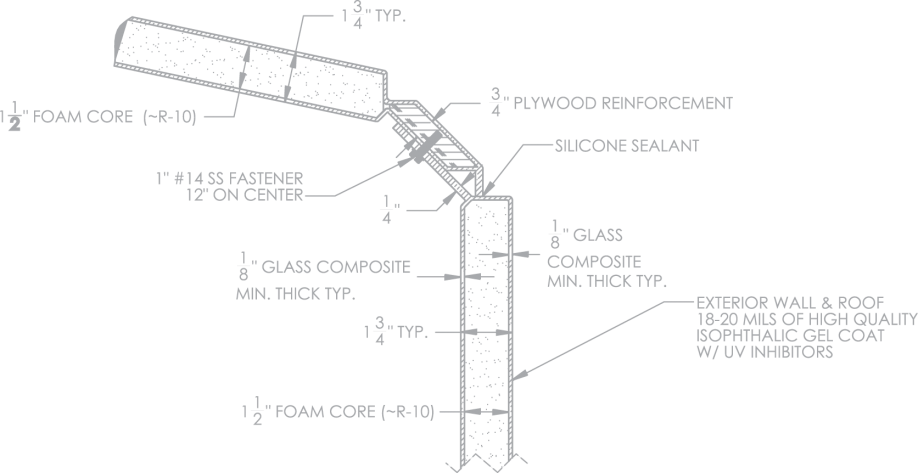Why Composites are Reinventing Building And Construction Products
Why Composites are Reinventing Building And Construction Products
Blog Article
The Function of Recycled Composites: Enhancing Efficiency and Sustainability Efforts
In today's ever-evolving landscape of materials design and sustainability campaigns, the utilization of recycled composites has actually arised as an engaging location of interest. By utilizing the power of recycled composites, companies can not only elevate their operational effectiveness and item top quality yet also add to a much more lasting future.
Benefits of Recycled Composites
Recycled composites use a sustainable option that not only improves efficiency yet likewise minimizes environmental effect in different markets. One of the key benefits of utilizing recycled composites is their ability to divert waste from land fills. By including materials such as recycled plastics or carbon fiber into producing processes, companies can reduce the quantity of waste created and advertise a round economic situation.
Moreover, recycled composites frequently exhibit comparable or also superior mechanical residential properties to virgin products. This implies that products made from recycled compounds can preserve high performance standards while being more eco pleasant. In addition, using recycled compounds can aid business meet their sustainability objectives and minimize their carbon footprint.

Performance Benefits of Recycled Composites
Enhancing structural honesty and resilience, recycled compounds provide remarkable performance advantages in different commercial applications. One substantial advantage is the enhanced strength-to-weight ratio that recycled compounds provide. This building is particularly critical in markets such as aerospace, auto, and construction, where light-weight products that keep high strength are very demanded.

Furthermore, recycled compounds use remarkable tiredness resistance contrasted to several typical products - composites. This particular is essential in industries subject to cyclic loading or vibrant tensions, as it assists avoid premature failing and makes certain lasting integrity
Additionally, recycled composites can be customized to satisfy particular performance needs by changing the type and percentage of recycled products utilized in their manufacturing procedure. This personalization capability allows for the development of high-performance compounds that attend to the distinct needs of various industries, better highlighting the efficiency advantages of recycled compounds.
Ecological Impact of Recycled Compounds
The adoption of recycled composites in different markets has motivated a closer exam of their environmental impact. When examining the ecological implications of recycled compounds, it is vital to consider both their manufacturing process and end-of-life disposal. In comparison to traditional compounds, recycled composites use the advantage of diverting waste from land fills and minimizing the need for basic materials extraction (composites). This facet adds to decrease energy usage and greenhouse gas emissions throughout the manufacturing stage, aligning with sustainability goals.
By incorporating recycled materials into new composite products, firms can add to resource conservation and waste reduction efforts. Proceeded research study and growth in this field are vital to optimize the content ecological efficiency of recycled compounds and advance sustainable techniques across sectors.
Applications of Recycled Composites
Different industries have actually welcomed the use of recycled composites due to their versatility and performance-enhancing residential properties. One of the key applications of recycled compounds is in the automotive sector, where they are utilized to make lightweight components such as bumpers, indoor panels, and under-the-hood components. These compounds aid lower the total weight of cars, improving gas effectiveness and reducing carbon exhausts.
In the building and construction market, recycled composites are increasingly being used to develop weather-resistant and long lasting structure materials. These products provide high strength-to-weight ratios, making them suitable for applications such as roofing, cladding, and outdoor decking. Additionally, using recycled compounds in infrastructure projects, such as bridges and passages, has obtained grip due to their longevity and resistance to rust.
Additionally, the aerospace industry depends on recycled compounds to produce airplane components that need high strength and tightness. These compounds play an essential function in boosting the performance and gas performance of aircraft while minimizing upkeep costs. In general, the varied applications of recycled composites throughout sectors highlight their significant contribution to enhancing sustainability efforts and enhancing efficiency requirements.
Future Expectation for Recycled Composites
With an increasing focus on sustainability and advancement, the future expectation for recycled compounds in different industries appears appealing. As firms aim to satisfy environmental objectives and minimize their carbon footprint, the demand for sustainable materials like recycled composites is expected to rise considerably. Industries such as automotive, aerospace, customer, and building items are progressively turning to recycled composites as a result of their this contact form lightweight, sturdy, and green residential over at this website properties.
In the automobile field, using recycled compounds in vehicle manufacturing is predicted to boost as automakers look for to generate lighter and more fuel-efficient lorries. In a similar way, in the building market, there is a growing passion in making use of recycled composites for facilities projects to lower waste and boost sustainability. The aerospace market is likewise discovering the capacity of recycled composites for aircraft components to improve gas performance and lower exhausts.
Conclusion
The applications of recycled compounds are vast, varying from building to automotive sectors. Moving forward, the usage of recycled composites is anticipated to continue to expand as markets and business prioritize sustainability initiatives in their procedures.
In today's ever-evolving landscape of products engineering and sustainability campaigns, the use of recycled composites has arised as an engaging area of interest. In comparison to traditional compounds, recycled composites provide the benefit of diverting waste from landfills and minimizing the demand for raw materials removal. By integrating recycled materials into new composite items, firms can contribute to source conservation and waste decrease initiatives.In the construction market, recycled composites are progressively being used to create durable and weather-resistant building products. As firms strive to meet environmental goals and minimize their carbon impact, the demand for lasting materials like recycled composites is anticipated to climb significantly.
Report this page